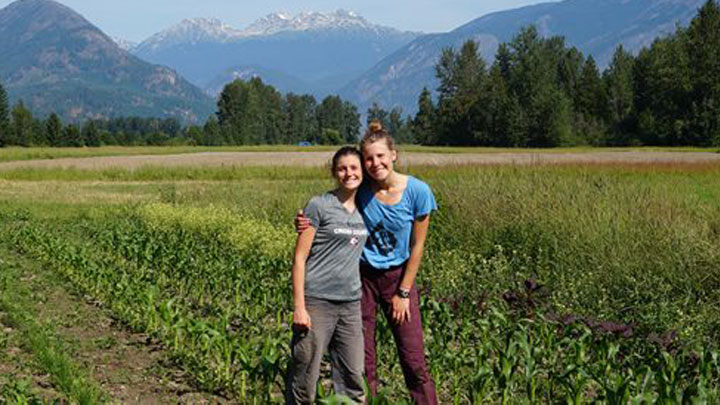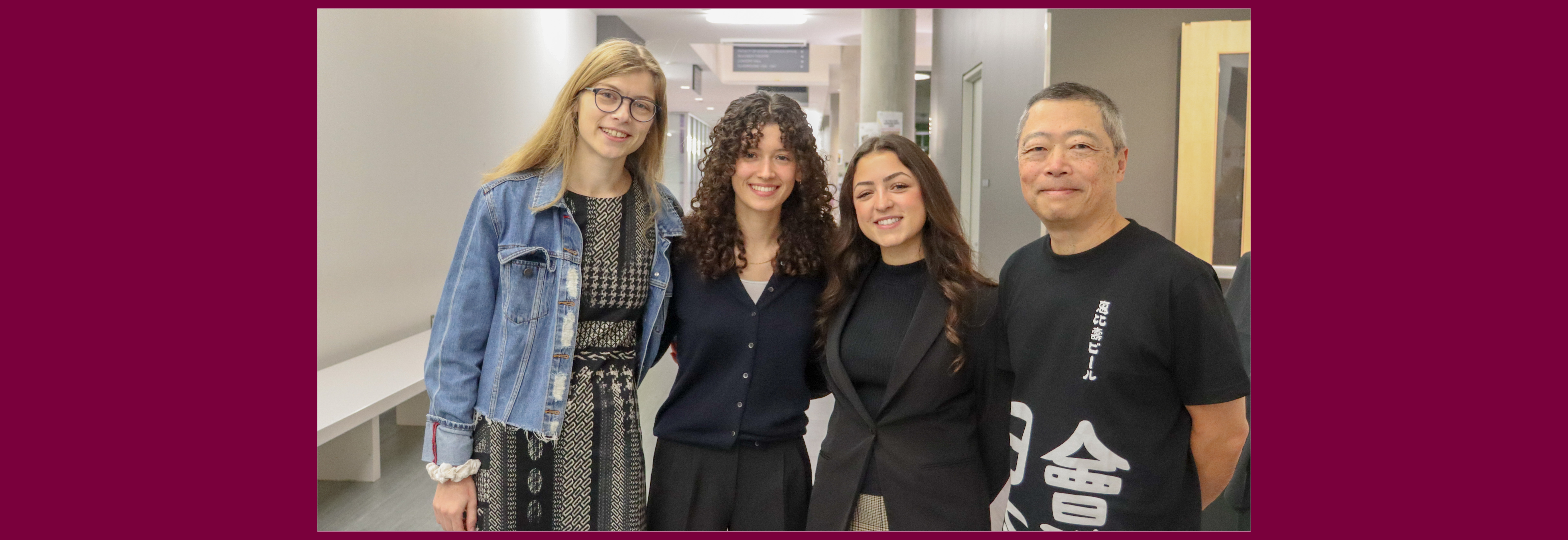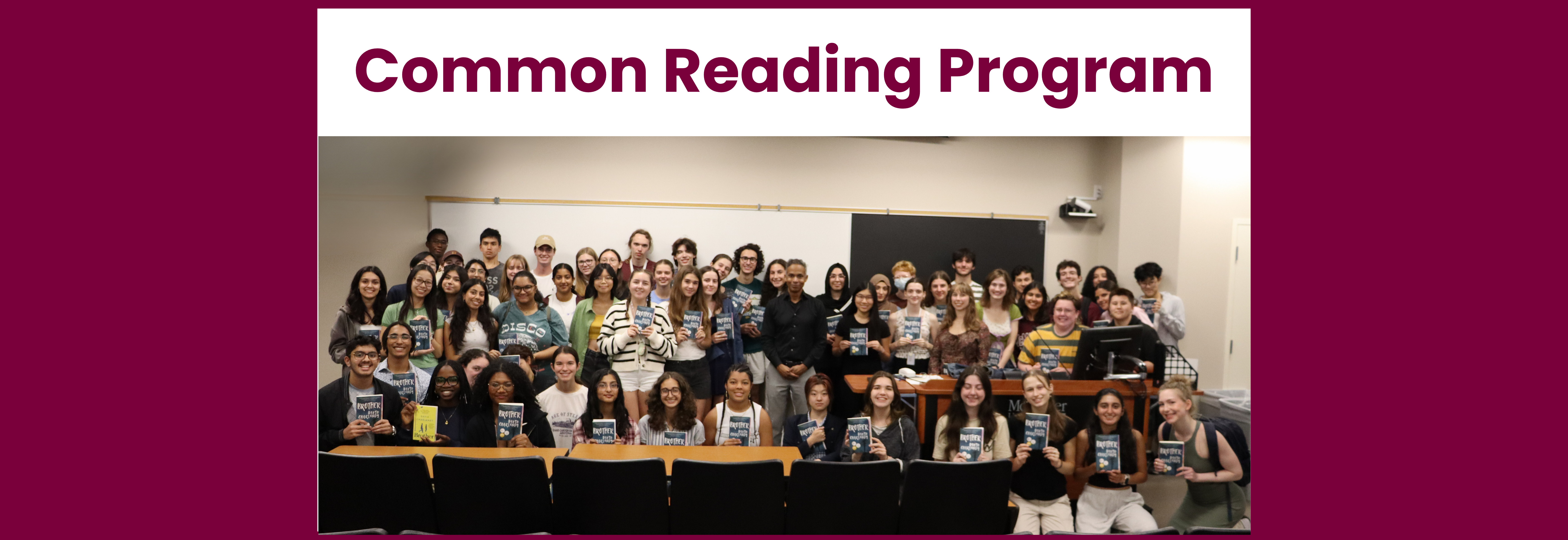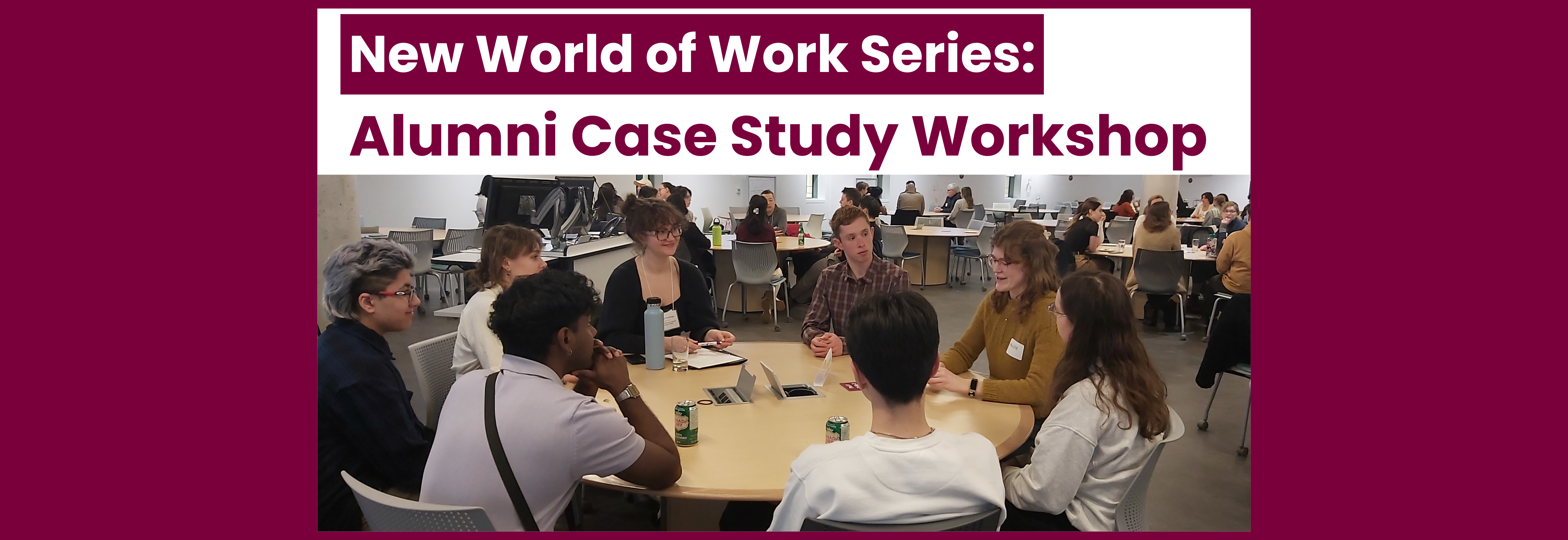The Renaissance Award: A Summer on Sustainable Farms

By Megan Watson & Avery McNair
Originally published in the McMaster Daily News
School offers an incredible outlet to education; however, the classroom is not the only setting in which McMaster students are learning.
Megan Watson and Avery McNair are 2019 graduates from the Faculty of Health Sciences and Arts & Science respectively. Together they spent their summer travelling across Canada learning first-hand about small-scale regenerative farming, all thanks to the McMaster Renaissance Award. They set out from Toronto at the beginning of May and, by the beginning of August, had travelled from Newfoundland all the way to Vancouver Island, staying anywhere from a couple hours to a week at 23 different farms.
What is the Renaissance Award?
The Drs. Jolie Ringash and Glen Bandiera Renaissance Award is a scholarship that provides up to $25,000 to students from all levels and faculties to complete a proposed self-directed experiential learning experience outside of their field of study. We used this unique opportunity to propose a cross-country exploration into sustainable farming, a field with which neither of us were familiar. The goal was to translate our experience into a film which will be screened at McMaster this coming year.
How did we meet?
We met on the first day of our 2015 Welcome Week. We were two students in Whidden Hall who hadn’t received their student cards upon move-in since we neglected to complete the required online information (oops!). We never grew out of this matching tardiness, which came to be both a blessing and a curse as we planned and executed our 3-month cross-country adventure.
What inspired our project?
The most challenging part of the entire project was coming up with the idea. The inspiration for our project stemmed from a need to get our hands dirty in grassroot ventures that also offered a lens of hope into the ‘real world’ as soon-to-be grads. Food, with roots in health, environment, community, and economy, made for a perfect path of exploration.
What did we learn?
We met many incredible people, putting faces and values behind small-scale Canadian farms, and we learned a lot. From the Atlantic to the Pacific, the weather, landscapes and social climates varied; however, two themes were consistent across all of the farms.
- Healthy communities are both a motivation for, and an outcome of, small-scale farming. Farmers connect with their communities in many different ways, including selling at farmers’ markets, community supported agriculture models, and facilitating on-farm visits through tours, concerts, long table dinners, or on farm stores and cafes.
- Healthy soil is the nation-wide key to growing good, healthy food. Farmers are implementing many traditional techniques to reduce external inputs and improve soil health, such as crop rotations, intercropping, no tilling, constant soil coverage, and rotational cow grazing.
While the farmers we met could agree that large-scale meat production is harmful in many ways, they also taught us that raising animals in an ethical manner is an integral part of agriculture – even on vegetable farms the animals are crucial for creating closed nutrient cycles.
Another jarring, recurring fact from a farmer in Nova Scotia was: North Americans spend less of their income on food than any other society. We don’t eat less, we eat very cheap in relation to the money we make – we see produce and meats at farmers’ markets as too expensive, and we spend the money elsewhere.
Neither of us had ever questioned the importance of food, and in University it is really easy to value convenience and cost over healthy, environmentally-benefitting, whole foods. One farmer in Prince George, BC put it eloquently: “You were seeing food as fuel, not as medicine.” We have since witnessed farmers handle food with remarkable care in both the field and the kitchen – for them, the vegetables, berries, and animals are part of a larger ecosystem, nourishing the land as well as our bodies.
We also witnessed that organic and other food labels can be deceiving. There are non-organic farms that go beyond organic but choose not to certify, and at the same time there are certified organic farms that grow produce in 300+acre monocultures and spray organic-certified herbicides five times a season. We concluded that the best way to decipher the language of the food market is to meet the people that are growing the food and to ask them about their farm and practice.
What can you do?
Think about your food
When we are in the mentality that food = fuel, we consume without a second thought. Take a minute and consider what you are eating, where it came from, and where it had to go to get to your plate.
Vote with your dollar
Consumer capital is a very strong force in our society, and as a consumer you have three chances a day to use that power to support the farmers and food systems that you believe in.
Visit your local farmers’ market
Farmers’ markets are on the rise across Canada, and they are a very effective way of re-connecting farmers and eaters. Take the opportunity to get to know the values of the people behind the booths – it’s the best way to know if they share yours.
Buy a share in a CSA
Many small farms use the Community Supported Agriculture model to deliver the freshest produce to you as it ripens in the ground. Google “CSA” and your city/town to find one near you.
Vote!
It’s a very effective way of contributing to large-scale change. In the upcoming federal election every party has an agricultural platform.
Watch our film
Stay posted for the screening of our film at McMaster to learn more about our experience!
To learn (and see) more: instagram.com/whatisagroecology
—
This marks the seventh consecutive year that an Artsci student has won a Renaissance Award. Click here to learn more!
Related News
News Listing

Students Reflect on New World of Work Event
Alumni, Artsci, Experiential Learning, Students
3 days ago

Author inspires Arts & Science students to tell their stories
Artsci, Events, Experiential Learning, Students
October 4, 2024

2024 New World of Work Series Event
Alumni, Artsci, Experiential Learning, Students
September 10, 2024
